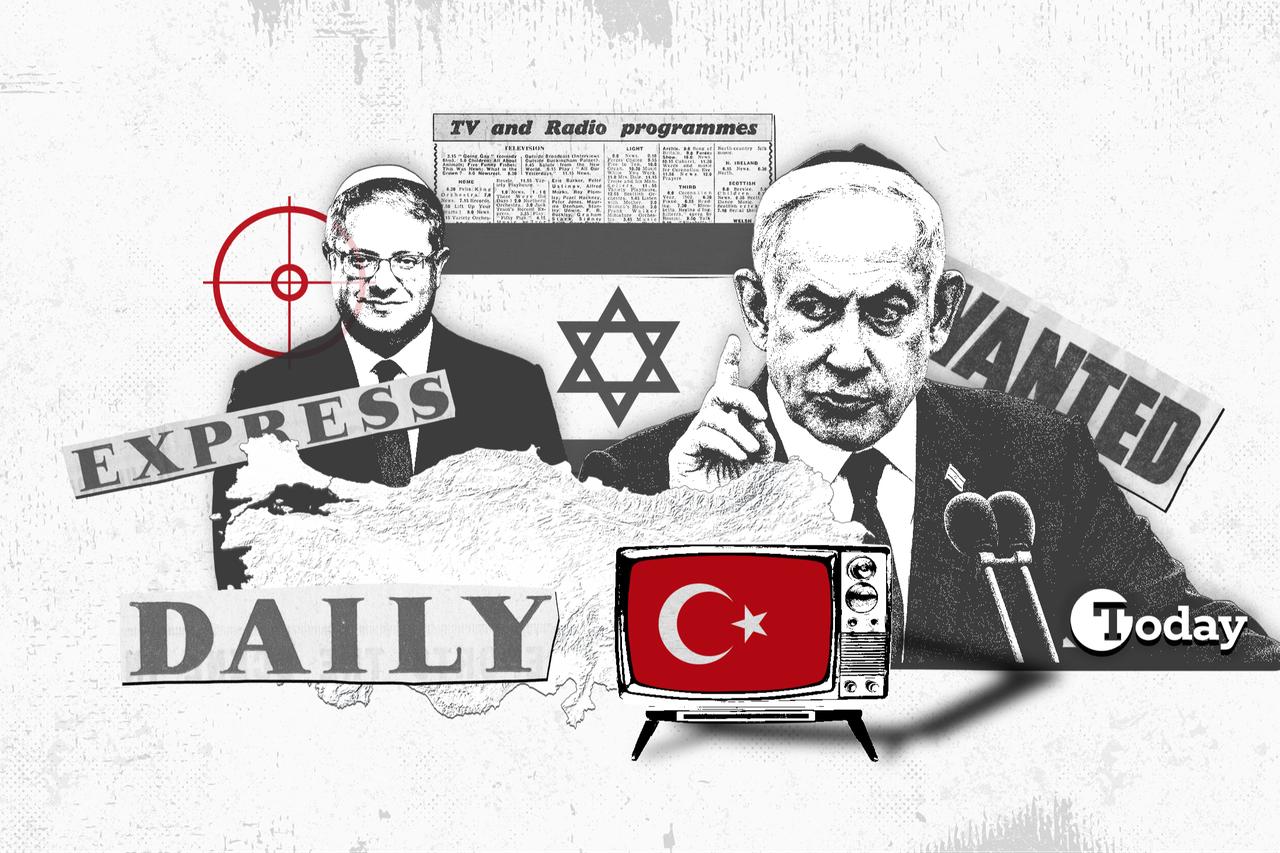
Israel seems to have launched an almost full-fledged media war against Türkiye to shape the international public opinion, similar to its decadeslong efforts against Iran. The general goal is to demonize Türkiye, make it look like a destructive force in the Middle East and beyond. With a few allies in Arabic media, Israeli sources fabricate information, manipulate events, and carry out these efforts almost daily as a part of a broader agenda.
Recently, Israeli sources claimed that Türkiye planned an assassination attempt against far-right Israeli minister Itamar Ben-Gvir. The claims were first voiced almost a year ago, and they were deliberately brought to the agenda again last week. Türkiye quickly refuted the claims. The real aim was to portray Türkiye as a dangerous, rogue state that acts beyond reason. As a state that shouldered the historical weight of a genocide that will haunt many Jewish generations, Israel aims to demonize Türkiye as part of a deliberate policy. However, Israel’s persuasiveness is minimal—or, more accurately, virtually nonexistent.
It is hard to understand Israel’s wishful thinking. In Israel's view, Türkiye has become a new destructive force in Syria, yet over the years, Ankara has hosted more than 5 million Syrians who were fleeing war and destruction. While Syrians were living in the makeshift camps in Lebanon and Jordan, those in Türkiye were able to integrate into city life and take part in the workforce at the expense of public outcry and the rise of anti-refugee political movements in Türkiye. According to official figures, more than 100,000 Syrians held work permits in Türkiye in 2023.
Now, Israel wants to portray Türkiye as a belligerent country that establishes military bases all over Syria with "sinister intentions." Gulf media cover stories, with "very ambiguous" sources, that Israel struck "Turkish weapon depots" as if Türkiye is an entity that needs to conceal or bury weapons like a paramilitary force. Portraying the Turkish army's presence in Syria as comparable to Hezbollah’s activities is, again, a deliberate policy.
There were also reports, firstly published by Gulf media, citing Israeli sources, also claiming that Israeli forces allegedly dismantled "Turkish surveillance devices" during a recent airlift in rural Damascus. These reports later turned out to be false and have been denied by Israeli media outlets.
Additionally, a senior Israeli analyst claimed that Türkiye is becoming “a much more dangerous factor than Iran.” Eli Carmon, a counterterrorism expert at Reichman University, told Israeli media outlet Ynet that Ankara’s recent moves in Syria and its political support for Hamas have raised alarm in Israeli security circles. He argued that Türkiye’s growing role in the region and its firm stance on Gaza are being closely watched by Israeli officials.
Türkiye, however, has not provided armed support to Hamas in Gaza before or after Oct. 7, 2023, despite its longstanding backing of the group’s political wing. Carmon claimed that the situation carries the risk of military escalation and said Israel should respond on the political level, citing Türkiye’s efforts to establish a military foothold in Syria and its opposition to Israel’s offensive in Gaza.
With the changing balance of power in Syria, the Netanyahu administration is consistently pursuing a policy of "antagonizing" Türkiye among its own public, negatively impacting Israeli public perception of Ankara. Israeli professors who previously spoke to Türkiye Today also warned that changes in Syria's political landscape could lead to open confrontation between Türkiye and Israel; however, Ankara and Tel Aviv established a round-the-clock military hotline to prevent possible confrontation and misunderstandings in Syria, getting rid of all the claims about possible “war scenarios” between both nations.
The Israeli government continuously wants to represent the new Syrian administration as a puppet state controlled by Türkiye, since Netanyahu is "not happy" with Damascus’ transformation to a properly running state after 13 years of civil war, as they aim to divide the country into cantons by using the people of Sweida in southern Syria.
In addition to its international media campaign, Israel is actively working to shape domestic public opinion against Türkiye. The Israeli government frequently portrays Türkiye as the puppet master behind Syria’s recovery, suggesting that Damascus is under Ankara’s control. This narrative aligns with Prime Minister Benjamin Netanyahu’s discomfort over Syria’s stabilization after years of civil war, as it undermines Israel’s strategic goal of dividing the country into cantons.
Another example of such a campaign came from Israeli journalist Eyal Berkovitch, who appeared on Channel 13 and likened Israel’s regional confrontations to a football tournament. He stated, “We beat Hamas in the quarterfinals on penalties, passed Iran in the semifinals, and the final will be against Türkiye.”
Türkiye never uses fiery rhetoric toward Jews or Jewishness. On the contrary, Türkiye genuinely sees itself as a historical protector of Jews in history. It is not only the Ottoman Empire’s help for hundreds of thousands of Jews during the Spanish expulsion, but hosting them with grace, and providing them a society where they lived as neighbors of Turks, Armenians, Greeks, and Bulgarians for centuries. This is a striking inconsistency, given Israel’s relatively short existence as a state and the numerous massacres it has carried out in that time.
In short, Türkiye is a state that follows international rules and is well-integrated into the international society. Israel’s current attempt to “Iranize” Türkiye is a wasted effort. It may very well take some time to recognize this, as Israel often seems to learn things the hard way.